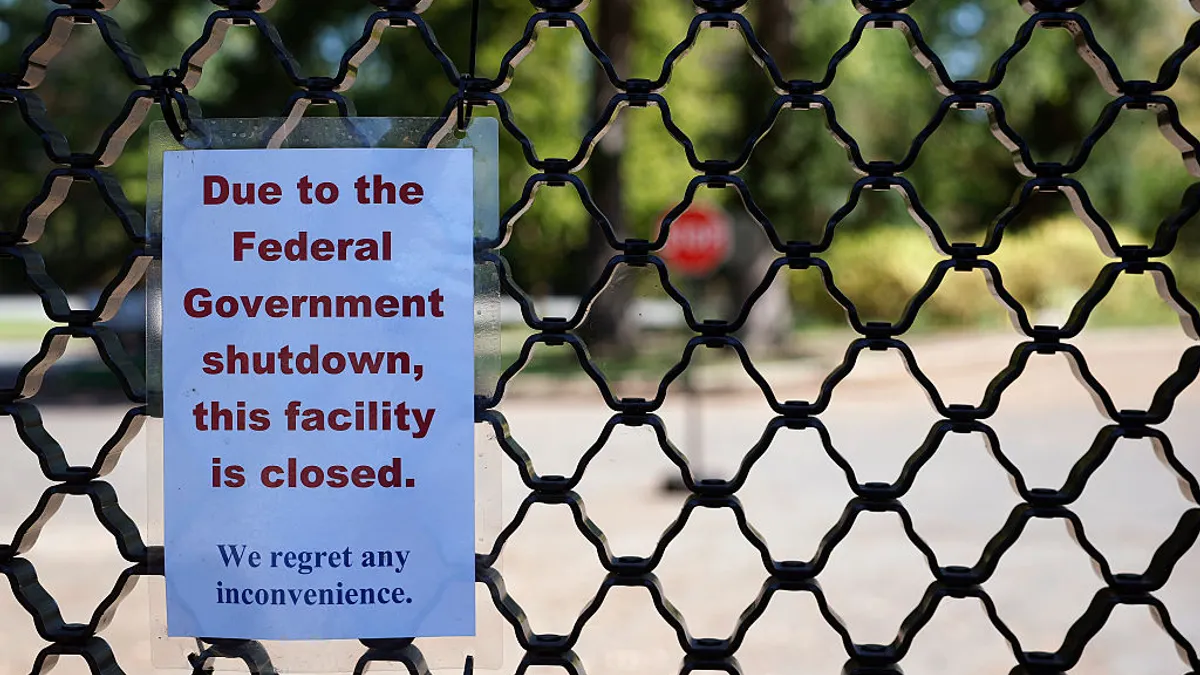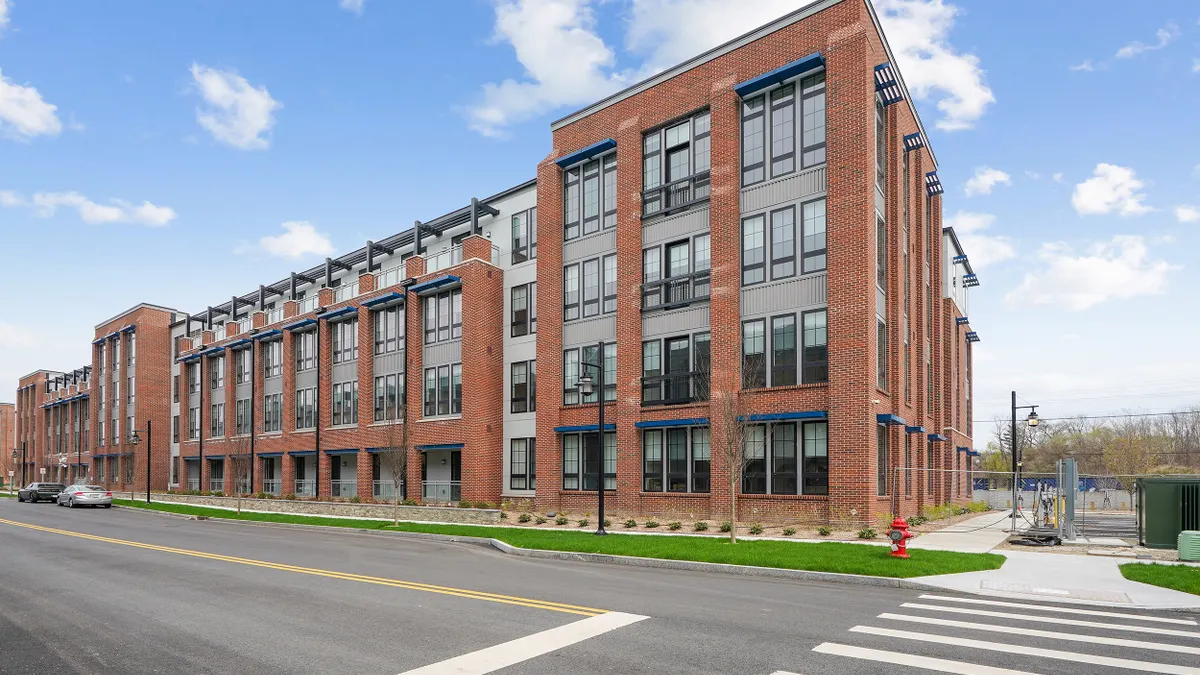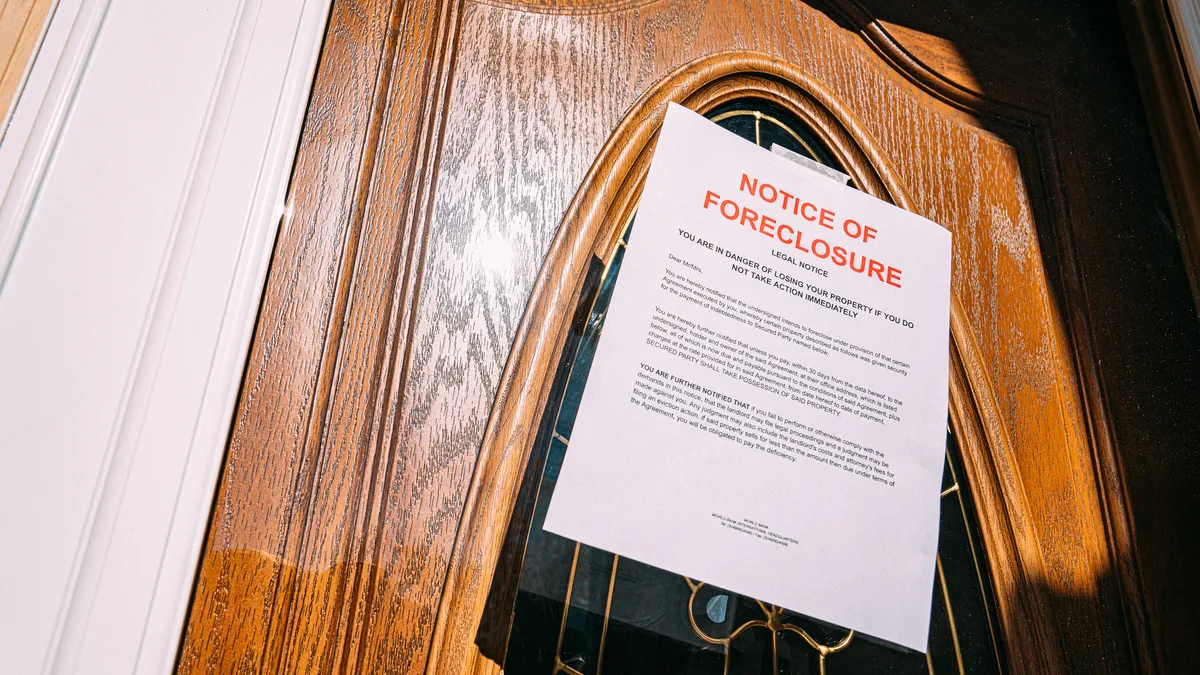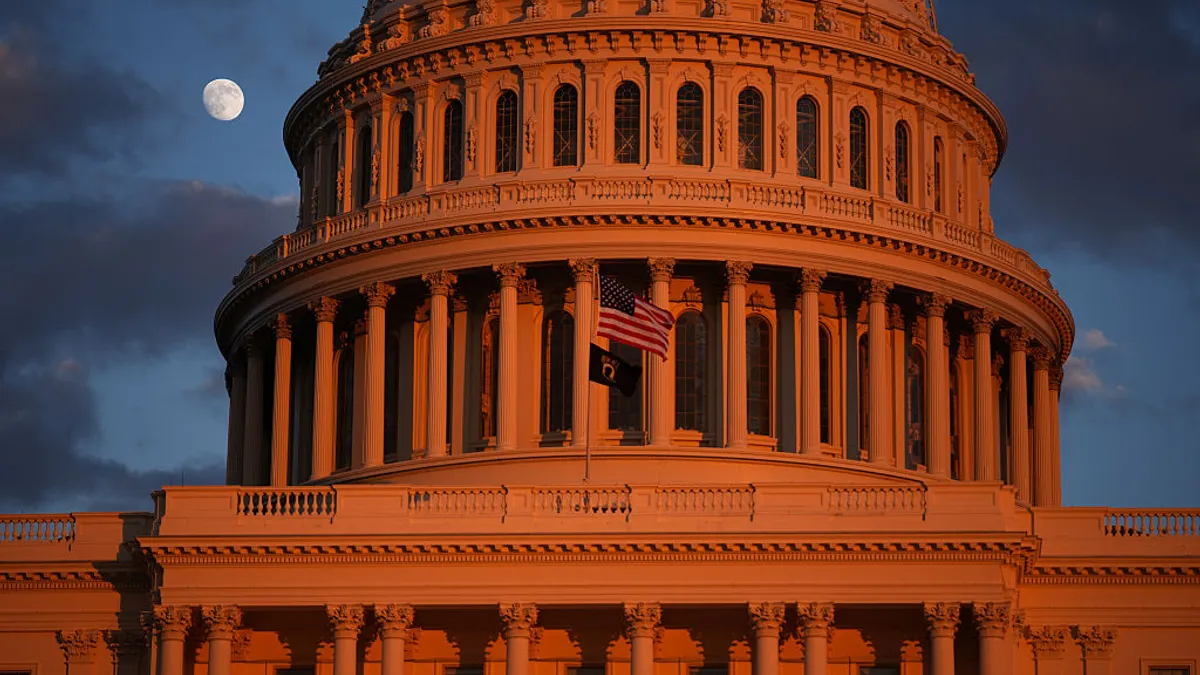How will the federal government shutdown impact the multifamily industry? That depends on how long it drags on, and there are few public indications of meaningful negotiations so far, AP News reported.
“If history is any guide, and it may not be this time around, the immediate impact of a federal government shutdown on multifamily industry should be limited,” according to an Oct. 1 post from the National Multifamily Housing Council. Many of President Donald Trump’s actions have no precedent, making this particular government funding standoff more unpredictable than past iterations, per the Washington Post.
HUD’s activities have largely stopped, and 71% of its staff have been furloughed, The New York Times reported. Only a skeleton staff remains to keep essential functions online and respond to emergency situations. Multifamily Dive first reached out to HUD before the government shut down, but the agency has not provided any comment.
The Federal Housing Administration will close multifamily mortgages with firm commitments but will not accept new applications, and even those deals will likely face significant delays due to the lack of staff, according to the agency’s 2025 shutdown contingency plan, released Sept. 29.
The 2025 contingency plan also revealed that the Trump administration has already cut HUD’s staff by about 30% from 2023 levels since he took office, per a Politico analysis. Several key HUD offices saw even more drastic reductions: the Office of Field Policy and Management, which ensures that policies are effectively communicated and implemented; the Office of Fair Housing and Equal Opportunity, which enforces federal housing laws and handles housing discrimination complaints; and the Office of General Counsel, which enforces the Fair Housing Act.
There are likely further cuts coming, though none have yet been confirmed. A Sept. 24 Office of Management and Budget memo instructed federal agencies to carry out mass layoffs in the event of a government shutdown. A Trump official said Sunday that the administration will start firing federal workers if negotiations with Democrats are "absolutely going nowhere," and later that day, the president said, "it's taking place right now," Reuters reported.
What multifamily pros should expect
Federal housing subsidies and many other federal programs from which housing providers benefit are not mandatory spending, and thus would be affected if the shutdown persists, according to the National Apartment Association’s 2025 shutdown resource.
For now, though, housing agencies should be able to draw from eLOCCS, HUD’s main grant disbursement system, to access their operating subsidies and capital funds, according to the National Association of Housing and Redevelopment Officials’ 2025 government shutdown resource. Money for the Public Housing Operating Fund has been obligated through November, and Housing Assistance Payments and Admin Fee payments have been loaded through mid-November.
Section 8 Project-Based Rental Assistance can operate for as long as its advanced funding lasts, through October. That means obligated Housing Choice Vouchers will continue to be honored but new vouchers will not be issued, and renewals for expiring Section 8 Housing Assistance Payments contracts may be at risk if the shutdown continues for more than 30 days, according to an alert from Boston-based law firm Nixon Peabody.
The shutdown will not affect Fannie Mae and Freddie Mac — the largest providers of multifamily financing — because they are self-funded and do not rely on the federal government to operate. However, the Federal Emergency Management Agency’s National Flood Insurance Program cannot sell new or renew insurance policies, according to the National Multifamily Housing Council. Existing NFIP policies will remain in effect until their expiration dates, and FEMA will continue to pay claims until funds run out.
Owners and operators should continue to submit vouchers, draws, reports and other certifications to HUD throughout the shutdown — and prepare for the worst, per Nixon Peabody.
“Owners should review their portfolios to confirm which properties may be impacted and develop a contingency plan to cover operational shortfalls in the case of a prolonged shutdown,” according to the firm.



















